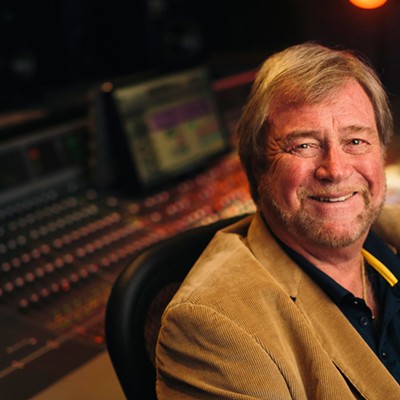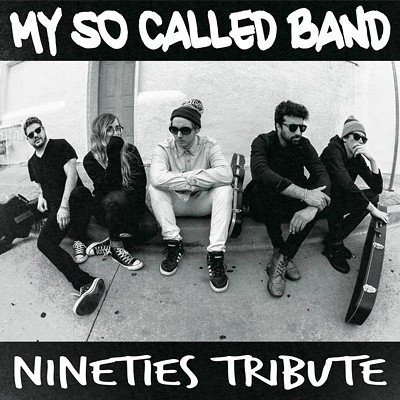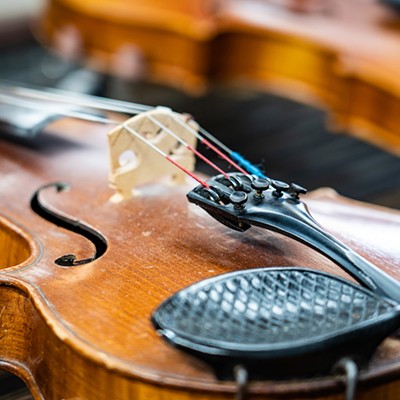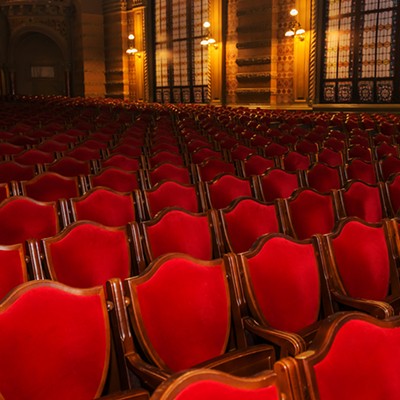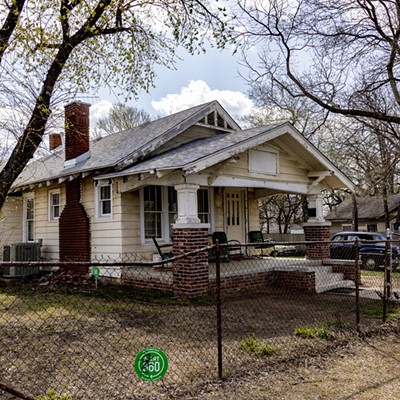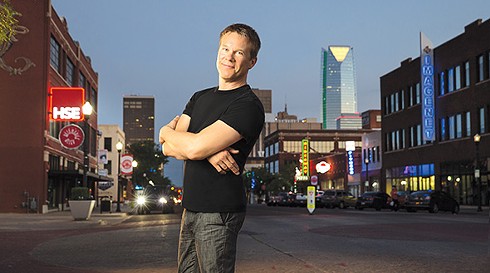
Freemason symbolism and a spacey soundtrack created by an “ambient god” are included in Oklahoma City Philharmonic’s upcoming concert celebrating artistic freedom. Independent Creativity 8 p.m. Saturday at Civic Center Music Hall, 201 N. Walker Ave., features Leonard Bernstein’s “Three Dance Episodes” from On the Town, Brian Eno’s “An Ending (Ascent),” Jennifer Higdon’s Concerto for Harp and Orchestra and Wolfgang Amadeus Mozart’s Symphony No. 41 in C major (Jupiter).
Alexander Mickelthwate, artistic director of OKC Phil, said Mozart’s symphony is “entrenched in Freemason symbolism.” While Freemasonry is most commonly known in the 21st century as the subject of Illuminati conspiracy theories, in 1788, when Mozart composed the symphony, the secret society was known for encouraging freethinking and equality. Along with Mozart, several of America’s Founding Fathers, including George Washington and Benjamin Franklin, were members of the organization.
“Nowadays, it has a very different connotation, but at that time, it was actually illuminated,” Mickelthwate said. “It was a secret society, but one with really intelligent people. … If you think about it, at that time in Europe, you were either Protestant or Catholic, and everybody was that, so it was deeply entrenched in religion and not so much in science. But if you were to look at the symbols [of the Freemasons] … they were about scientific instruments and natural phenomenon and Egyptian history. If you compare this with religion, it was many steps forward. People in the lodge sat equally next to each other, so the gardener or the local person could run the lodge and a noble person could be sitting at the same table.”
The references to the secret society’s symbolism can be found by carefully studying the construction of the composition, Mickelthwate said. The number three, prominently used in Masonic rituals, can be frequently found in the work, for example, and the key of C major, which includes no sharps or flats, “represents the resurrection of the enlightened man to the rank of Master,” according to the “Music and Masons” series produced by British Columbia’s Ashlar Masonic Lodge No. 3. For non-Masons, the composer’s belief in equality is much easier to hear, Mickelthwate said.
“In the last movement of that symphony, there’s two famous passages where he layers five or six voices on top of each other like a canon where each voice is equal, where not one voice sticks out,” Mickelthwate said. “Everybody is individual but equal. It’s maybe not something one would recognize if you don’t know about it, but if you know about it, it’s like, ‘Whoa.’ Suddenly it opens up. It’s a kind of miracle the way he wrote it.”
The composer and the Founding Fathers held many common beliefs, Mickelthwate said, though Freemasonry would be outlawed in Mozart’s native country.
“In a way, Mozart would’ve been a perfect American,” Mickelthwate said.
About Town
Born in Lawrence, Massachusetts, in 1918, Bernstein also believed in equality, Mickelthwate said.“The original idea of America, I think, comes through in Bernstein’s writing,” Mickelthwate said. “It’s not for the king. It’s not for some snobby art person. It’s for everybody.”
“Three Dance Episodes” is taken from the musical comedy On the Town, the story of three sailors on shore leave in New York City during World War II, which was later adapted into a film starring Gene Kelly and Frank Sinatra. Bernstein helped popularize classical music in the U.S. by composing musicals such as West Side Story and scores for films such as On the Waterfront and conducting televised Young People’s Concerts from 1958-1972, but traditionalist composers were not impressed by Bernstein’s populist approach.
“In the ’60s and ’70s, the famous living composers in Europe at that time all dismissed Bernstein,” Mickelthwate said. “They thought, ‘Gosh. This is not really art what he’s doing.’ And he was like, ‘What? Are you crazy? I’m composing for myself and the people.’”
English producer Brian Eno, meanwhile, is a self-described “non-musician” who helped codify and popularize ambient music in the 1970s with albums Discreet Music and Ambient 1: Music for Airports. His “An Ending (Ascent)” comes from the 1983 album Apollo: Atmospheres and Soundtracks, which provides the score for a documentary about the Apollo moon missions.
“He’s, of course, this kind of ambient god in music working with a small group of musicians,” Mickelthwate said. “Originally, this was not written for orchestra, but it has been adapted two or three times, I think, for classical instruments. … They took that recording and just literally rewrote it bar by bar for orchestra.”
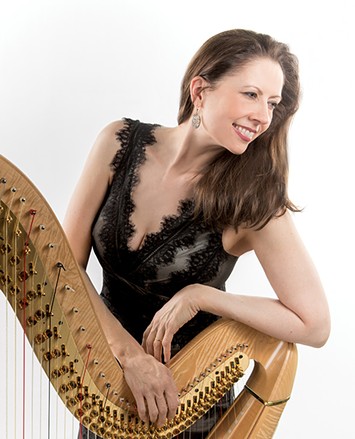
Though Eno might not consider himself a composer, his ambient work is influential in contemporary classical music.
“You were almost allowed to play nothing, and it became music,” Mickelthwate said. “There’s a whole bunch of musicians now coming from minimalism and from noise, and there’s a whole bunch that crisscross into classical. It’s awesome — I love it.”
Though it was intentionally composed for an orchestra, Higdon’s Concerto for Harp and Orchestra has two elements that aren’t incredibly common in the symphony: a harpist (Norman native Yolanda Kondonassis) and a female composer.
“Now there are actually more female composers, but it is still a big deal, I think,” Mickelthwate said. “During Mozart’s time, there wasn’t really anybody. It wasn’t really until the 1980s that it started.”
Historically, compositions by women can be dated back to 12th-century religious works by Hildegard von Bingen, female composers such as Fanny Mendelssohn, Clara Schumann and Amy Beach are not as commonly known and their works are not as often played as many of their male counterparts.
Higdon’s work, which has won two Grammys and a Pulitzer Prize, is “engaging and beautiful” and “classically based,” Mickelthwate said, but it also features contemporary elements.
“There’s something with Jennifer’s music always that is very powerful,” Mickelthwate said. “I don’t want to say ‘masculine’ because it makes you play with both sides, I feel. … It’s steeped in classical tradition and trying to go with that tradition into the 21st century and expanding it. … She embraces her history and takes those tools and uses them like an architect. She’s putting together a piece in a similar way to when Beethoven would put it together but with a little different language and creates something that way that is really classical but of the 21st century.”
Tickets are $19-$83. Visit okcphil.org.

